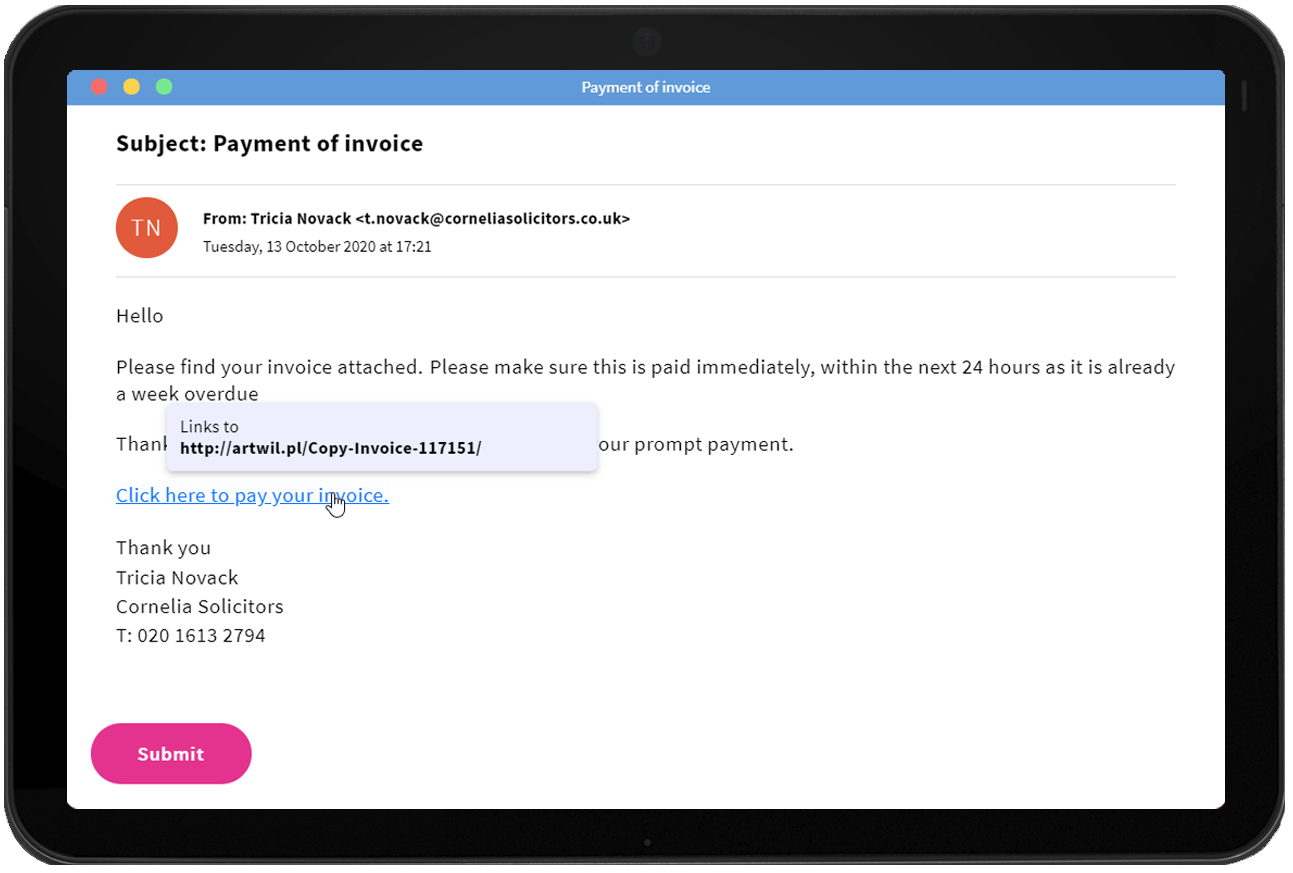
Research shows that even with all of the right IT protections in place, a majority of staff are at medium to high risk of falling prey to phishing attacks. These types of attacks are especially dangerous because, in contrast to other types of scams that may be easier to detect, phishing attacks use psychological gimmicks to trick the victim: they are designed to look credible and are sometimes even personalised. Therefore, even with all the right IT protection in place, one employee could click on one wrong link and potentially bring down a whole company.
With phishing attacks becoming ever more sophisticated, it is of utmost importance for your staff to be trained to know how to recognise red flags and avoid biting the bait, thereby protecting your information and your business from malicious attacks.
VinciWorks’ phishing challenges offer the user the utmost in hands-on, relevant training by presenting users with a series of simulated phishing emails in which they have to identify the red flags.
This challenge is the fourth in our series of phishing training challenges available to organisations. The series of challenges can be taken as part of our new, comprehensive Cyber Security: Journey to Safety cyber training course, and can be integrated as part of a larger cyber awareness training plan.
Course features and outcomes:
- The challenge includes a general introduction to phishing
- Administrators can produce a report with each employee’s phishing risk score, and a review of the scores will help organisations identify high risk employees
- The exercise challenges users to spot red flags in real phishing emails
- The course is customisable and available in multiple languages








